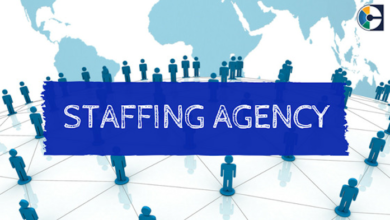Proven Strategies to Enhance Employee Experience and Boost Productivity

Employee experience is more than just a buzzword; it is one of the most essential investments business leaders can make. Employees cite work-life balance, meaningful relationships with coworkers, flexible scheduling, and career growth opportunities when asked what they look for in their ideal workplace.
To increase productivity, businesses must provide employees with the required tools and environment. To help, here are some proven strategies to enhance the employee experience and boost productivity.
Give Your Employees the Tools They Need
Providing employees with the tools they need to work efficiently is a simple but effective way to enhance employee experience and boost productivity. This can include everything from software for project management to communication and performance-tracking apps. Investing in these tools will help your employees stay focused and motivated throughout the day, making them more productive overall.
In addition to providing your employees with the right tools for their jobs, you must provide them with the proper training and support they need to succeed. Whether this means offering them self-paced learning programs, webinars, company training with a corporate trainer, or in-person events, your team members must have the resources they need to grow as professionals and advance their careers with your organization.
Taking the time to solicit feedback and carefully listen to your employees regularly can significantly impact their feelings about their workplace experiences. Use pulse survey platforms, open surveys, and performance management software to learn more about your employees’ needs and make the necessary changes to improve your business.
Invest in Training
Employees who feel they’re getting the training and support they need to do their job well are more confident and efficient. This translates to higher productivity and lower error rates, leading to cost savings and increased profitability.
Creating a learning culture in the workplace isn’t just good for employee morale; it also helps attract and retain top talent. When employees see companies invest in their growth, they’re more likely to stay with the company and recommend it to others.
In addition to training, you can boost employee productivity by implementing simple strategies that make it easier for your employees to get their jobs done. For example, providing new hires with a dedicated mentor or assigning them to teams that help them navigate the business can reduce communication barriers and make connecting with coworkers easier. Likewise, allowing employees to work remotely can provide them with more flexibility that helps them balance their professional and personal lives. In addition, the ability to choose which technology they use at work and how they go about their job can help give them a greater sense of control.
Develop a Culture of Recognition
A company’s culture can be impacted by many factors, including how much value employees place on being recognized for their hard work. Employees who feel their efforts could be more appreciated may become disengaged and even consider leaving the job.
Developing a culture of recognition starts with the organization’s leadership. Leaders must be willing to model appreciation behaviors so that their teams will follow suit. They can also establish formal recognition programs to reinforce this practice’s importance further.
In addition to providing social recognition, managers must recognize individual accomplishments. This allows employees to see that their hard work is being noticed and encourages them to continue doing good work. When recognizing employees, being as specific and accurate as possible is essential. For example, thanking an employee for making a significant contribution during a make-or-break meeting with an important client is far more meaningful than simply saying, “Great job!”
When employees can depend on receiving recognition regularly, they will be more likely to continue their efforts and strive to meet or exceed business goals. To maximize the impact of your recognition program, opt for a solution that provides a flexible rewards marketplace so that employees can choose how to redeem their points.
Provide Career Growth Opportunities
One of the most critical employee experience strategies is providing career growth opportunities for employees. This will keep them happy at work and improve their performance. Employees are more likely to stay with a company that offers them a promising future and will be motivated to meet their goals while helping their employer achieve its business goals.
In addition to offering internal advancement opportunities, companies should provide access to external career-growth programs such as tuition reimbursement, workshops, and professional coaching. It is essential that managers and human resources people take the time to talk with each employee about their goals for the future and how their job could help them reach those goals.
It is critical to ensure all employees know their employer cares about them. If employees aren’t unsatisfied with their job, it will wear them down even if they enjoy their actual work. So, it’s essential to identify and address motivation killers such as lack of appreciation, rigid hierarchies, insufficient recognition, and toxic coworkers.
Create a Work Environment That Encourages Collaboration
A work environment that encourages collaboration is more than just a nice one; it’s essential for attracting and retaining talented employees. When team members are not working together, communication and engagement suffer, tasks may be duplicated, and new ideas are never generated. In a collaborative work environment, employees feel valued for their contributions and are more likely to take responsibility for their actions.
To create a collaborative work environment, you must ensure that your team members have the tools and resources to interact with each other. Providing dedicated channels for interaction can help ensure that all team members have the opportunity to connect and build rapport with one another. Organizing social activities, such as happy hours or game nights, can also help team members develop the camaraderie necessary for collaborative work.
Ensure your employees know you value collaboration by adding it to your company’s core values. This will give your team a sense of ownership and a clear set of guidelines for interacting with one another.




